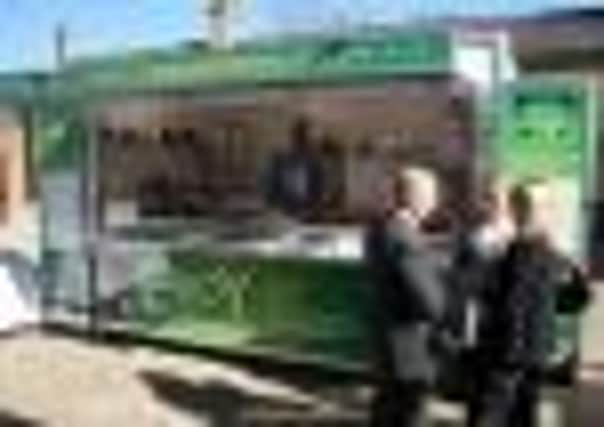Best to eat local in tough times


The picture showed two plates. One was of the ingredients of a cottage-pie ready meal from a supermarket – one and a half potatoes, a table-spoon’s worth of mince and a few straggly bits of onion. Price £2.29.
Next to it was what could be bought from a local butcher or shop for the same money. Three times as much meat, five potatoes, and a whole onion.
Advertisement
Hide AdAdvertisement
Hide AdIt was a graphic illustration of the nutritional argument for buying local. The pictures were provided by Denise Walton of the Scottish Borders Food Network.
She was the guest speaker at a conference in East Yorkshire this week where she explained that her organisation is trying to tackle this image of local food being unaffordable through one of its members, Berwickshire Housing Association.
“We’re working with tenants who are vulnerable and actually making food accessible to them.”
More than a hundred farmers, food producers and members of the hospitality trade gathered near Beverley for the conference at the Tickton Grange Hotel, one of the pioneers of sourcing locally.
Advertisement
Hide AdAdvertisement
Hide AdThey heard a call to arms from David Nowell who manages food and drink for the hotel and is also the acting chairman of the East Riding of Yorkshire Local Food Network which receives some European funding. “This is an opportunity for us to shout about what is available locally and within the growing seasons of East Yorkshire,” he told the audience. “Local food adds massive value to the visits of our customers, whether they’re coming for breakfast, or they’re having a three-course meal.
“It’s huge added value when you’re talking as passionately about the product as we can. My message really is to shout about it, because it’s good for business.”
But with many incomes declining in real terms as inflation rises, local food will face a challenging year as shoppers become more and more cautious about how they spend their money. Jonathan Knight, chief executive of the regional food group deliciouslyorkshire, said “I’m pleased to say that in spite of financial uncertainties and a disrupted start to the year, most of our members are reporting good support and firm trading.
“Some of our farm shop members have seen some trading down, especially in the more expensive meat cuts. But generally local food seems to be weathering the storm pretty well.”
Advertisement
Hide AdAdvertisement
Hide AdIt’s believed farmers markets are noticing a lower footfall however. Grant Burton, who rears pigs at Wilberfoss, sells sausages and bacon at farmers markets after switching his business approach.
“We recently decided to reduce very significantly our pig herd, simply because of the price of wheat,” he said.
“What we’ve cut out is most of the commercial stock and just kept a small quantity of pigs for making bacon and sausages.
“From that point of view, we shall be entirely dependent on things like the farmers’ market.”
Advertisement
Hide AdAdvertisement
Hide AdHe says that selling local food direct to the final customer is the only way to make enough to keep farming smaller numbers of pigs. Jonathan Knight thought some supermarkets needed to be reminded of the appetite among the public for locally produced food.
“The supermarkets continue to flirt with local food,” he said.
“Some, such as Booths and Waitrose, are keen to extend their ranges of local food while some need to be reminded that support for local food is still the strongest consumer trend, according to recent research from the Institute of Grocery Distribution.”
Judy Bell, who runs one of Yorkshire’s most successful niche producers, Shepherds Purse cheese near Thirsk, said sales are holding up well at the moment, but the future is less certain.
Advertisement
Hide AdAdvertisement
Hide Ad“I don’t think some of the cuts have hit, as yet,” she said.
“I think things could get tougher as this year goes on, and possibly into next year.”
But she thinks that the rising oil price will help to make the case for food produced close to where it is sold, and eaten.
“Local food has got to survive for the simple reason of the price of getting around.
“Diesel and petrol costs are really driving the cost of everything up and if you can buy your food locally it just makes more sense.”